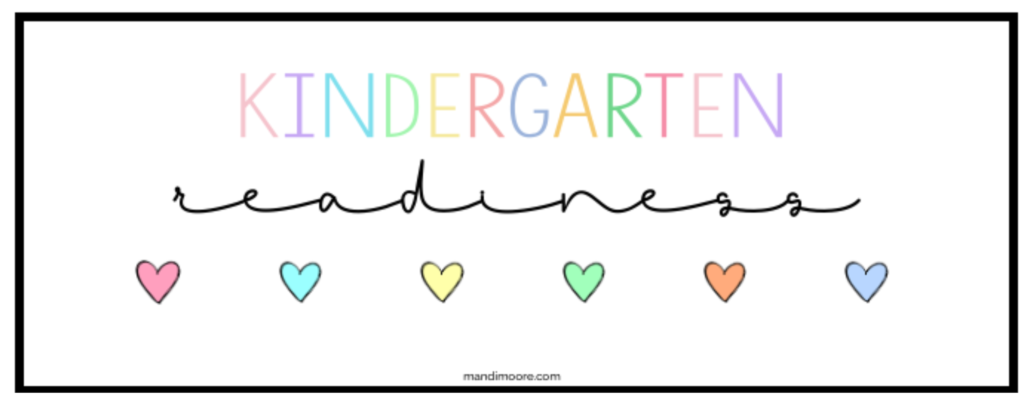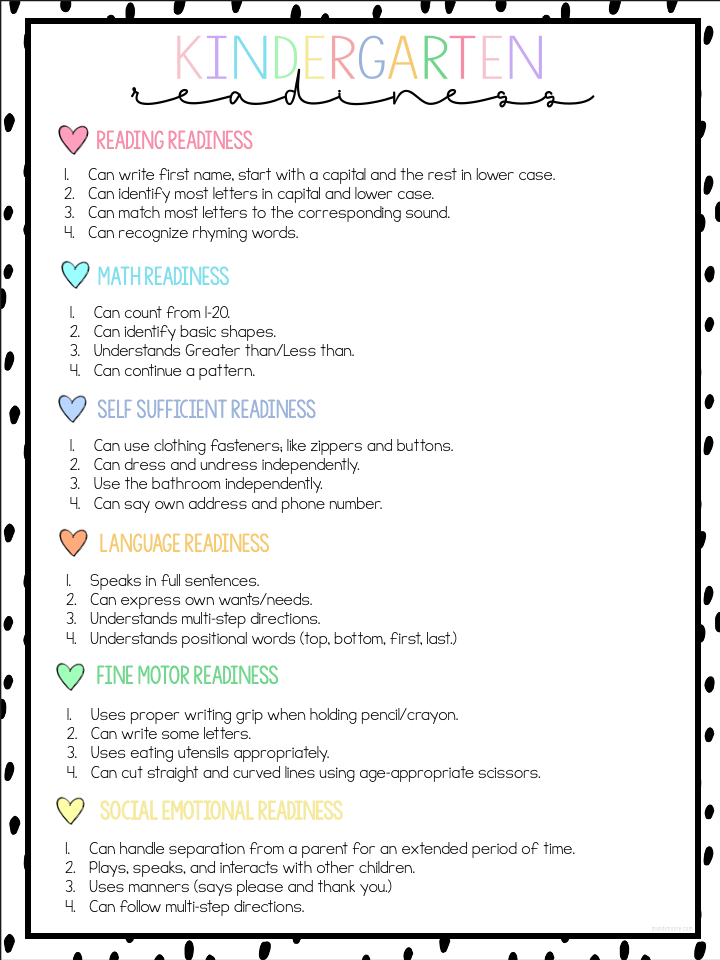In all my years of teaching, I can honestly say that these few things can make a huge difference in a child’s first year of school. If there was anything you could do to help your child’s confidence and ability to have a successful school year wouldn’t you do it?
Although it wouldn’t hinder their experience by any means, you should know your child’s teacher will thank you for this. Teachers are a special kind of superhero and I truly appreciate those loving kindergarten teachers. They seriously have the patience of a saint!!
But to make their day a tiny bit easier, these few things would help them offer more attention to the academic needs of your child and not only their social-emotional needs.

These are a few tips from an experienced teacher (and mom) that will give your child the confidence needed to step into their first day of kindergarten!

1. KNOW their full name and phone number
Your child should know these things in the event they are lost or in need. If they can speak, this should be one of the most important pieces of information for teachers, administrators, etc. Even better if they can write their name using a capital for the first letter and the rest lower case, as this can be one of the first things they will do in class. This doesn’t mean the penmanship has to be perfect; as long as it is legible.
2. Tie their shoes on their own
Please start teaching your child now, work with them at least twice a day. This is an important skill that is necessary for your child to take care of themselves throughout the day. No one wants to see a child trip over their laces or even worse, bend down to help out a friend and feel wet laces from … who knows what.
3. Can use the bathroom independently
This means, walking into a stall, locking the door, undoing pants/shorts, going potty, then washing and drying hands appropriately. It also would help to discuss the importance of privacy during bathroom breaks.
4. Speak Up
This is an important skill for those children that might be reserved or a quiet. Teach them to speak up when they need something, raising their hand will be taught in school but welcome the idea that if they need something, they can always let a teacher or staff member know. Manners are also an important skill that should be taught in the home and practiced at school, so lay down those foundational skills of yes ma’am, no ma’am, please and thank you.
5. Can eat/clean up independently
This may seem obvious but it’s important that you ensure your child can open their lunch items independently. It’s a great idea to do a practice lunch with your child. While teaching them how to sit the entire time, how long they will have to eat, what order to eat what is given and what to throw away.
If you’d like to see more ideas for preparing your child, see the page below to download for future reference.












 We’ve taken it on vacations, poolside and even brunch! It’s the perfect size and stays in my car, so we can fit a game in any time!
We’ve taken it on vacations, poolside and even brunch! It’s the perfect size and stays in my car, so we can fit a game in any time!  We loved spending the day at NCA Nationals! She is a star!
We loved spending the day at NCA Nationals! She is a star! 





 #heisris
#heisris






 Early birthday present celebrat
Early birthday present celebrat









 themed classr
themed classr
 #minniesheep
#minniesheep
 S
S